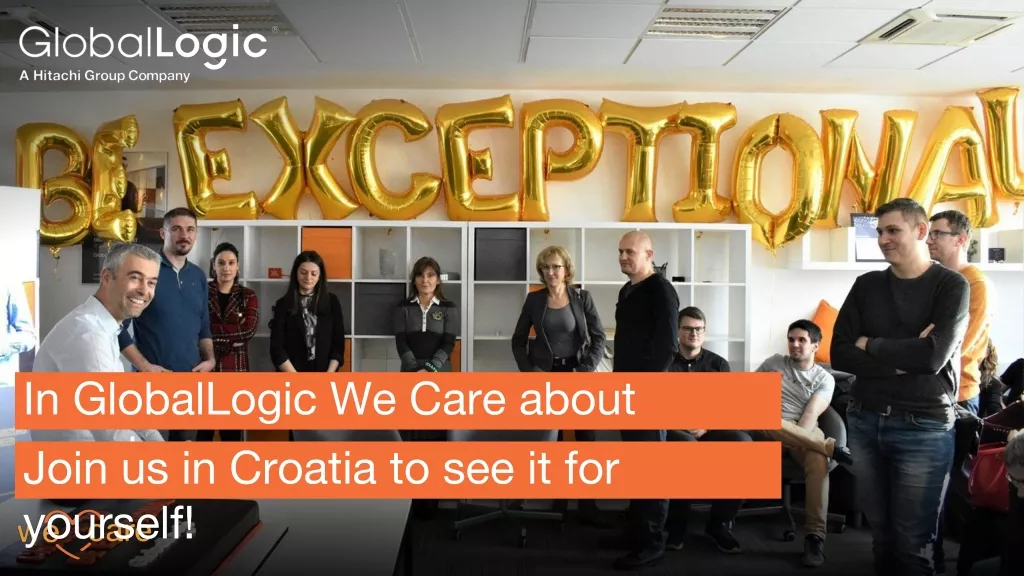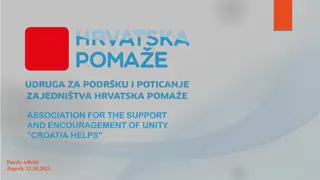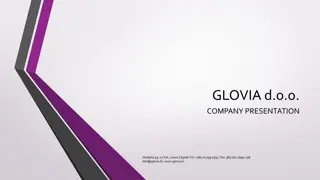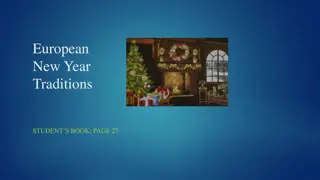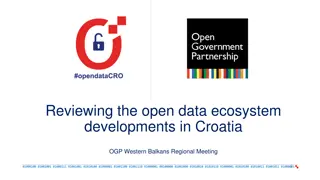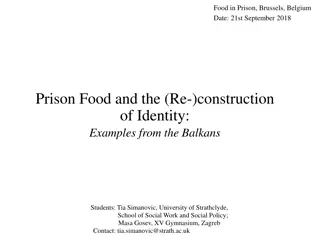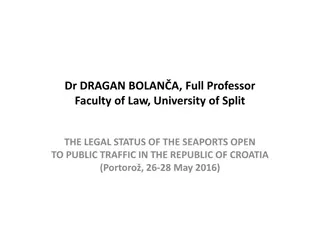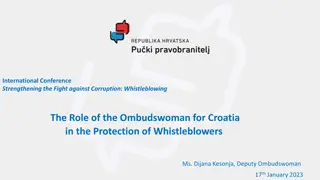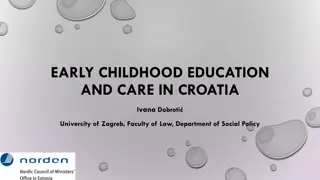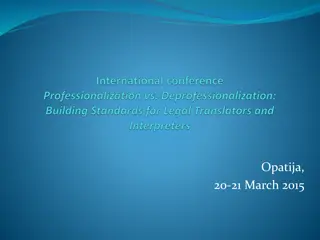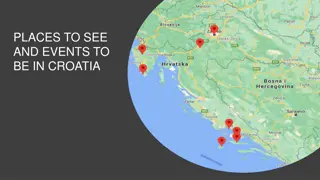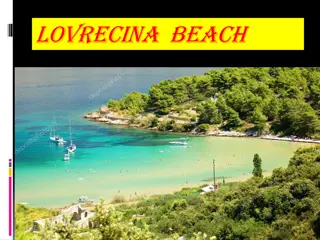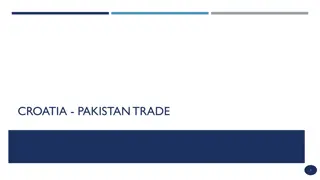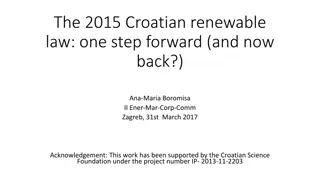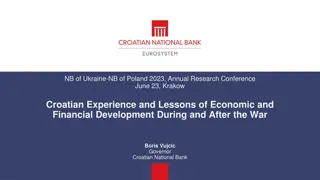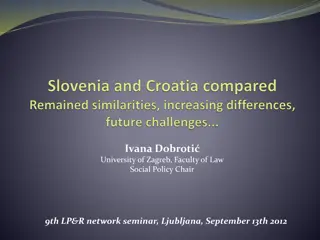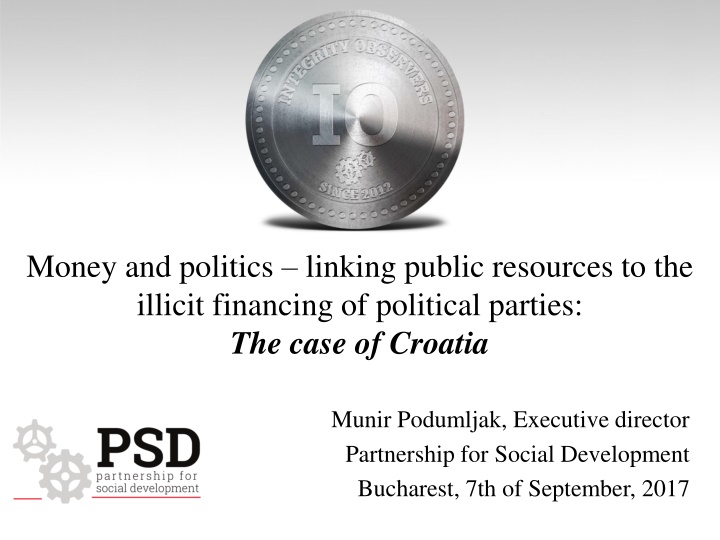
Link Between Public Resources and Illicit Political Financing in Croatia
Explore the impact of public resources on illicit financing of political parties in Croatia, delving into the country's regulatory framework, funding sources, limitations, and integrity breaches. Learn how the integrity eco-system has evolved post EU accession, shaping the financing landscape for political actors and participants.
Download Presentation

Please find below an Image/Link to download the presentation.
The content on the website is provided AS IS for your information and personal use only. It may not be sold, licensed, or shared on other websites without obtaining consent from the author. If you encounter any issues during the download, it is possible that the publisher has removed the file from their server.
You are allowed to download the files provided on this website for personal or commercial use, subject to the condition that they are used lawfully. All files are the property of their respective owners.
The content on the website is provided AS IS for your information and personal use only. It may not be sold, licensed, or shared on other websites without obtaining consent from the author.
E N D
Presentation Transcript
Money and politics linking public resources to the illicit financing of political parties: The case of Croatia Munir Podumljak, Executive director Partnership for Social Development Bucharest, 7th of September, 2017
Presentation Structure 1. Overview of integrity eco-system in the area of political party financing General landscape on public procurement General landscape on European European funding Data analysis Conclusions 2. 3. 4. 5.
Financing of political parties With the adoption of the Law on Financing Political Activities and Electoral Advertising in 2011, that was strongly influenced by the process of Croatian accession to the EU, overall integrity eco-system of the political activity in Croatia has significantly improved. Political activity financing regulatory framework covers financing of political actors (political parties, independent candidates and organized groups of candidates that participate in elections), acquisition and spending of funds for political activity, as well as supervision and audit of financial management in political activity.
Financing of political parties II Political actors and participants in the elections in Croatia can fund their activity through variety of means, from limited commercial activity and membership fees, to mandatory funding from state and local budgets, and compensations of the election advertising costs to the political parties that are successful in national/local elections. Election related activities of political actors can be financed from core funds of the political party/group/independent candidate, as well as from donations designated to fund election activities. 2017 regulation sets certain limitations of these activities in order to respond to integrity breaches in this area. Donations designated to support election activities are limited in the value/amount, they have to be held in separate account, and there are restrictions on sources of donations.
Financing of political parties III Private person can donate in one year up to approximately 4.000 EUR to any type of participant in elections (political party, independent candidate, group of candidates). Legal person can donate up to approximately 27.000 EUR in one year (any given year including election year) as set in Article 11 of the 2017 law. Foreign states and foreign legal persons cannot fund political parties in Croatia. Prohibition on funding of political activity applies to public sector entities including public companies, professional associations, religion-based organizations and non-governmental organizations, private companies with unresolved tax depths, anonymous donors, or funding through intermediaries.
Allowed expenditure in election campaign, Croatia Total allowed expenditure in election campaign (approx. in EUR based on temporary exchange rate) 1.100.000,00 200.000,00 Entity unit Type of elections Per candidate Presidential Parliamentary Per list of candidates in one election unit/region (total 10 + 2 regions) Per candidate/list of candidates Per candidate/list of candidates 200.000,00 137.000,00 EU Parliament Elections for Mayor of Zagreb and City Assembly Regional/local elections 82.000,00 Per candidate/list of candidates for governors/mayors of large cities and members of regional/local representative body Per candidate for cities and municipalities above 10.000 inhabitants and members of regional/local representative body Per candidate for cities between 3001 and 10.000 inhabitants and members of regional/local representative body Per candidate for cities between 3001 and 10.000 inhabitants and members of regional/local representative body 34.000,00 Regional/Local elections 13.700,00 Regional/Local elections 6.800,00 Regional/Local elections
Financing of political parties IV Law prescribes administrative and misdemeanor sanctions for violation of the law. Administrative sanctions for violation of the law can be applied by State Election Commission, and they include partial or complete suspension of compensation of election activity costs depending on the type of violation of the law. Initiation of proceedings before courts in cases of misdemeanor related to political party financing are in jurisdiction of State attorney. Sanctions prescribed for misdemeanor offences vary from approximately 13.000 EUR up to approximately 68.000 EUR for most severe violations of the law.
Financing of political parties V Additional strength of the misdemeanor provisions rest in the ability to sanction both parties in violation of the law, donor and the recipient of the donation. In addition, all political parties are subject of yearly audit that is conducted by State Audit Office, whose reports are publicly available and shared with the State Election Commission and State Attorney that are in charge of enforcement of the Law.
Main vulnerabilities of the system While regulation significantly improves overall political integrity eco- system related to political party financing, there are still issues that need to be addressed. There are no provisions in the legislation which would limit participation of the political party donors in public procurement procedures where recipients of the financial support exercise their political power before/after elections. Initiating of the proceedings and enforcement of sanctions in cases of the violation of the law is relatively law which hinders overall impact of such legislation and affects the issues relevant for this research.
General landscape on public procurement The 2011 Public Procurement Act made significant changes in Croatian public procurement system which aimed at greater transparency; simplification of public procurement implementation of public procurement procedures; and conflicts of interests prevention, such as: Electronic Public Procurement Classifieds (EOJN), simplification of procedures and reduction of costs for tenderers, obligation for publishing the procurement plan and contract register, subcontractors paid directly by the contracting authority, etc. In order to ensure the full and effective transposition of the EU procurement rules, a new public procurement law was adopted in 2016. The most important amendment advantageous tender as the sole award criteria. procedures and efficient include the most economically
Main vulnerabilities of PP system The State commission for supervision of PP procedure may act only at the request of tenderers and its enquiries are limited to the irregularities stipulated by the complainant. The Directorate for the PP system lacks the capacity to monitor and supervise the large number of contracting authorities and contracts, and decisions about the targets of pro-active investigations are left to the discretionary powers of Directorate employees and manager. In theory, any action in breach of the PP law would lead to the contract being void and criminal charges being filed with the State Attorney s Office, but it is not certain who is responsible for cancelling a contract and reporting the case for further action. An obligation to control the execution of PP contracts after the award dead letter.
Overview of PP corruption risk indicators In 2016, the total value of PP increased by 10,5% in comparison with 2015 and amounted to HRK 44.8 bn, or 13,1% GDP of the Republic of Croatia, which is lower than the average proportion of public procurement in GDP in EU 28 (around 14%). Petty procurement has reached a value of 2,83% GDP of the Republic of Croatia in 2016 (approximately 20% of total PP value). Around one-half of total PP contracting value in Croatia during the period 2012-16 was executed by contracting authorities that are not public bodies and are subject to weaker controls.
Structure of total public procurement (works, goods and services) by type of contracting authorities and as % of GDP, 2012-16, Croatia Source: Author's calculation based on the data of the Ministry of Economy, Directorate for Public Procurement System
Overview of PP corruption risk indicators Worrying decline in the competitiveness of public procurement: a) the value of the non-competitive procedures applied represent approximately 35% of total value of contracts signed (sample of 75 contracting authorities/all contracts in period 2012-2015); and b) 75% of the total value in the sample was signed in limited competition environment of up to three tenderers, while almost half of the value of signed contracts (47%) was signed in non-competition environment (1 tender received). The lowest price continues to hold a predominant position in award criteria used in the period 2012-2015. In-house procurement and horizontal contracting of huge value between public companies is still largely present.
General landscape on European European funding By gaining the EU membership on 1st of July 2013, Croatia has become entitled to the use of Cohesion and Structural funds at the very end of the financial perspective 2007-2013. It currently utilizes the funds from the structural instruments of the financial perspective 2007-2013 in the amount of EUR 800 million, which have been allocated to Croatia as a new member state for the first 6 months of the membership in the European Union. The Croatia absorption rate is relatively low compared to the EU average. For the financial perspective 2007-2013, Croatia stands the lowest compared to other member states at 81% of the total expenditure verified by the end of 2016 (EU 28 average being 94%). In the financial period 2014-2020, Croatia has at its disposal in total EUR 10,676 billion from the ESI funds. By December 2016 Croatia has contracted 11,84% of total available funds, while 3.2% was allocated to the beneficiaries.
General landscape on European European funding From anti-corruption' point of view, European funds provide a large additional pool of public resources for rent extraction, i.e., they add to the pool of particularistic allocation of public resources. In Croatia, according to figures provided by the European Union, between 2008 and 2009 a total of 13 cases of possible misuse of European funds have been reported, with the total value of approximately EUR 90 million. Most of these cases happened in public procurement.
EU funded public procurement In the period from 2012 to 2015, in total 111 public procurement contract financed from EU funds were signed in Croatia. The value amounted to HRK 936,6 million and the vast majority of the procurement was conducted in open procedure (96,5%). Almost 80% of the value of the contracts was won in relatively high competitive environment (4 tenderers or more). However, domination of the lowest price award criteria is even more pronounced in the EU funded procurement (99,32%) than it is the case in national funded procurement (90,1%).
EU funded public procurement by type of procedure, 2012-2015, Croatia No. of analyzed contracts Value of analyzed contracts (HRK) % of total value Open procedure 84 903.915.860 96,5% Restricted procedure 1 2.901.938 0,3% Negotiated procedure without prior negotiation 25 29.084.046 3,1% Not defined by law - exempted 1 735.360 0,1% TOTAL 111 936.637.204 100% Source: Author s calculations based on data from the Integrityobservers.eu database
EU funded public procurement by number of tenders received, 2012-2015, Croatia No. of analyzed contracts Value of analyzed contracts (HRK) % of total value 1 tender received 2-3 tenders received 4 tenders received 43 48.963.084 5,2% 30 168.571.677 18,0% 38 719.102.443 76,8% TOTAL 111 936.637.204 100% Source: Author s calculations based on data from the Integrityobservers.eu database
EU funded public procurement by award criteria, 2012-2015, Croatia Value of analyzed contracts (HRK) 930.289.463 No. of analyzed contracts % of total value 107 99,32% The lowest price The most economically advantageous tender 4 6.347.741 0,68% 111 936.637.204 TOTAL 100% Source: Author s calculations based on data from the Integrityobservers.eu database
Detailed analysis of the top 10 EU funded PP contracts (by value) The top 10 public procurement contracts, i.e. ones with the highest value, financed from EU funds in Croatia during the 2012-2015 period amount to EUR 100 Million (HRK 765,5 million) and it represent more than 80% of the total value of contracts in our sample. Those contracts were all contracted through the open procedure and the lowest price criteria. They were acquired in an environment of relatively high competition, with four or more tenderers. BUT! Ownership structure of successful bidders suggests that almost 50% of successful bidders are either state owned enterprises or privatized companies a risk of politicization of the EU Funds, as well as significant risks to corruption and clientelism in PP.
The top 10 EU funded public procurement contracts, 2012-2015, Croatia Contracting authority Hrvatske Ceste d.o.o. Zagreb Ministry of Entrepreneurship and Crafts Tenderer Viadukt d.d. Group of tenderers: Zagrebgradnja d.o.o.; Geoprojekt d.o.o. Group of tenderers: Tegra d.o.o.; urkin d.o.o.; Hidrotehnika d.o.o.,; Me imurska hidrogradnja d.o.o.; Aquatehnika d.o.o.; Vodogradnja d.d.; Proton d.o.o. AgustaWestland Group of tenderers: Aquaterm d.o.o.; Brodska Posavina d.d.; Vodogradnja Rijeka d.o.o. Group of tenderers: Kon ar In enjering za Energetiku i Transport d.d,; Hidroin eniring d.o.o.; Palir d.o.o. Group of tenderers: Gradnja d.o.o.; Cestorad d.d. Group of tenderers: Sokol d.o.o.; Aquaterm d.o.o. Group of tenderers: Monte-mont d.o.o. i Izgradnja d.o.o. Group of tenderers: Safege d.o.o.; Institut IGH d.d. Value of contracts (HRK) 161.888.677,19 154.639.448,53 Me imurske vode d.o.o. akovec 132.369.116,69 Ministry of the Interior 119.450.311,50 71.124.984,55 Odvodnja Pore d.o.o. Me imurske vode d.o.o. akovec 60.290.759,66 Ministry of the Interior 25.275.259,60 19.756.935,09 Komunalac d.o.o. upanja Croatian Conservation Institute 12.216.214,93 Vodovod Grada Vukovara d.o.o. 8.498.437,50 TOTAL 765.510.145,24 Source: Author s calculations based on data from the Integrityobservers.eu database
Tenderers winning the top ten EU funded PP contracts by type of ownership, 2012-2015, Croatia No. of tenderers % of total no. State owned enterprises Mixed ownership with more than 50% of private equity Privatized enterprises Private enterprises TOTAL 1 4,2% 2 8,3% 7 29,2% 14 58,3% 24 100,0% Source: Author s calculations based on data from the Integrityobservers.eu database and Financial Agency (FINA)
The top ten EU funded PP contracts by appearance of SOEs and privatized companies, 2012-2015, Croatia Value of contracts Number of contract s 7 % of total sample value State owned enterprises and privatized enteprizes participation 614.086.683,72 80,22% Private enterprises 151.423.461,52 3 19,78% TOTAL 765.510.145,24 10 100,0% Source: Author s calculations based on data from the Integrityobservers.eu database and Financial Agency (FINA)
Conclusions Regulatory framework for financing of political parties sets a relatively high standard and has established some important transparency and control mechanisms. Enforcement, especially in the area of imposing sanctions, is weak if not almost absent as serious barrier to corruption and politicization. Research indicates the weaknesses of EU funded PP in Croatia: risks of preferential treatment, corruption and clientelism remain, which consequently lead to increased politicization of the EU Funds that are distributed in Croatia. The integrity eco-system of public procurement system in Croatia is seriously undermined by common practice of contracting consortiums that are consisted of SoEs and privatized entities that are subject to political influence.
Thank you. Questions? Partnership for Social Development e-mail: info@psd.hr


